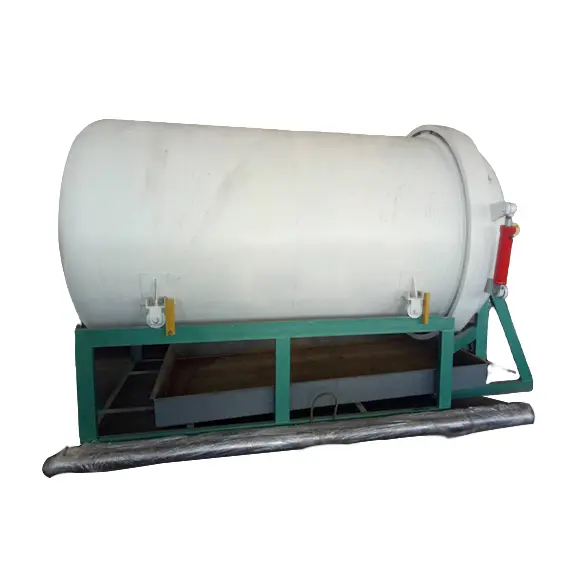Oct . 21, 2024 20:59 Back to list
Refined Cottonseed Oil Processing Unit Services for Optimal Production Efficiency
The Refinement and Service of Cottonseed Oil A Comprehensive Overview
Cottonseed oil, derived from the seeds of cotton plants, is a versatile vegetable oil widely used in food preparation, cooking, and industrial applications. Its refinement process is critical in ensuring the quality and safety of the oil, making it suitable for consumption and various uses. This article explores the refined unit service associated with cottonseed oil, highlighting the importance of this process, its applications, and best practices for ensuring high-quality oil production.
The Refinement Process
The refinement of cottonseed oil involves several key steps aimed at removing impurities, enhancing the oil's flavor, color, and shelf life. The main stages in the refining process include degumming, neutralization, bleaching, and deodorization.
1. Degumming The first step involves separating the gum and phospholipids from the crude oil, which can cause cloudiness and affect the oil’s stability. This is typically achieved by treating the oil with hot water or a dilute acid, allowing these impurities to be removed easily.
2. Neutralization Once degummed, the oil undergoes neutralization to eliminate free fatty acids that contribute to unpleasant flavors and lower the oil’s smoke point. This is done using an alkali solution, usually sodium hydroxide, which reacts with the fatty acids to form soaps that can be separated from the oil.
3. Bleaching The bleached oil undergoes a process to remove any remaining pigments, such as chlorophyll and carotenoids, which can affect the oil's color and flavor. Activated clays or adsorbents are often used to bind with these pigments, and the mixture is then heated and filtered.
4. Deodorization The final stage involves the removal of volatile compounds that can impart undesirable odors and flavors. Deodorization is carried out under a vacuum at high temperatures, ensuring that the oil retains its neutral taste and aroma.
Applications of Refined Cottonseed Oil
Refined cottonseed oil is widely used in cooking and food manufacturing due to its light flavor, high smoke point, and stability during frying. It is a popular choice for frying snacks and fast foods, as it can withstand high temperatures without breaking down. Additionally, refined cottonseed oil is commonly used as an ingredient in salad dressings, mayonnaise, and various baked goods.
cottonseed oil refined unit service

Beyond culinary uses, cottonseed oil also finds applications in the cosmetic and personal care industries. Its emollient properties make it valuable in the formulation of skincare products, hair oils, and soaps. Moreover, it is utilized in the production of industrial products, including lubricants and biodiesel, showcasing its versatility.
Best Practices for Cottonseed Oil Refinement
To ensure the highest quality of refined cottonseed oil, it is crucial to follow best practices throughout the refining process. This includes
- Quality Raw Materials Using high-quality cottonseed is fundamental to producing superior oil. Ensuring that seeds are free from contaminants and properly handled will greatly affect the final product.
- Optimal Processing Conditions Maintaining precise temperatures and timing during each refinement stage is essential to maximize efficiency and yield while minimizing the formation of unwanted by-products.
- Regular Quality Testing Conducting routine analyses of the oil at various stages of the refining process ensures that the final product meets industry standards for purity and safety. Parameters such as acidity, peroxide value, and color should be regularly assessed.
- Sustainable Practices Incorporating environmentally friendly practices into the refining process can enhance the sustainability of cottonseed oil production. This includes minimizing waste and exploring ways to use by-products, such as meal and lint from cottonseed processing.
Conclusion
The refinement of cottonseed oil is a complex yet vital process that delivers a versatile product for various culinary, cosmetic, and industrial applications. Understanding the essential stages of refinement and implementing best practices can significantly improve the quality and safety of cottonseed oil. As demand continues to rise, the industry must balance efficiency, quality, and sustainability to meet the needs of consumers and businesses alike. By investing in refined unit services and adhering to high standards, the cottonseed oil industry can thrive and continue to be a reliable source of essential oils.
-
HP 120 Cold Oil Press-Hebei Huipin Machinery|Oil Extraction, Cold Press
NewsAug.07,2025
-
HP 120 Model Cold Oil Press-Hebei Huipin Machinery|Cold Oil Extraction, High Efficiency
NewsAug.07,2025
-
HP 120 Model Cold Oil Press - High-Efficiency Oil Extraction&Automated Processing
NewsAug.07,2025
-
Safflower Oil Press Service | Expert & Efficient Solutions
NewsAug.07,2025
-
HP 120 Model Cold Oil Press - Hebei Huipin Machinery | Advanced Oil Extraction Technology
NewsAug.06,2025
-
HP 120 Cold Oil Press-Hebei Huipin Machinery|Cold Pressing, Oil Extraction
NewsAug.06,2025
